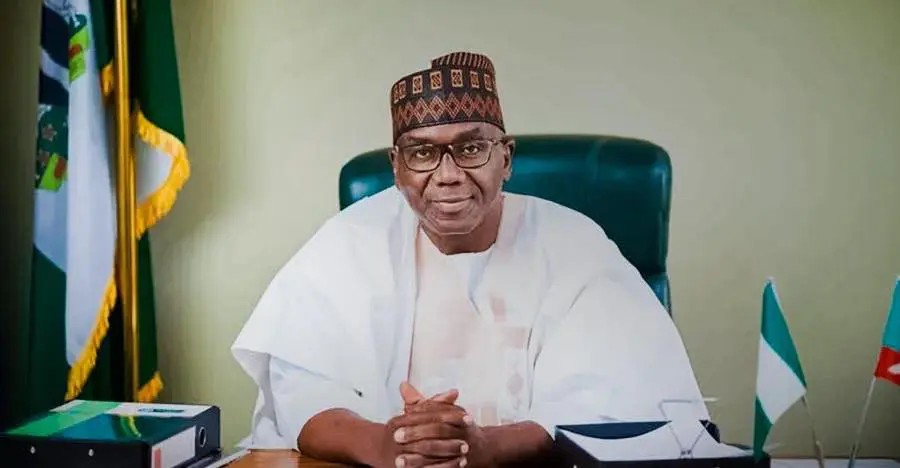… Blames Illegal Checkpoints, Taxes, Poor Infrastructure
Daud Olatunji
The Nigeria Governors’ Forum has expressed deep concern over the persistent surge in food prices across the country, attributing the trend to a proliferation of illegal checkpoints, unauthorised taxes, and crumbling transport infrastructure.
This was disclosed in a communiqué issued at the end of the Forum’s third meeting held in Abuja on Wednesday, June 18, 2025. The document was signed by the NGF Chairman and Kwara State Governor, AbdulRahman AbdulRazaq, and read by Lagos State Governor, Babajide Sanwo-Olu.
According to Sanwo-Olu, the governors deliberated extensively on key national issues, particularly those undermining food security, national stability, and economic recovery.
“The Forum received a briefing from the National Security Adviser, Nuhu Ribadu, accompanied by the Ministers of Defence, Agriculture, Livestock Development, and Transportation.
The presentation revealed that the proliferation of checkpoints, illegal taxation, and poor infrastructure are major drivers of food price inflation and inefficiencies in the food supply chain,” Sanwo-Olu said.
He revealed that a high-level inter-ministerial committee had been constituted to address the crisis, and had already submitted its recommendations to the Forum.
“The governors acknowledged the urgency of the matter and expressed their readiness to work with federal authorities to dismantle unauthorised checkpoints, harmonise levies, and facilitate the unhindered movement of goods across state boundaries,” he added.
Beyond the food supply challenges, the Forum also discussed economic recovery efforts, with particular attention on the Nigeria COVID-19 Action Recovery and Economic Stimulus (NG-CARES) programme.
Sanwo-Olu disclosed that the governors expressed dissatisfaction with what they described as the World Bank’s failure to honour funding pledges under the first phase of the programme, despite substantial state-level investments.
“Governors expressed concern over the non-fulfilment of funding pledges by the Bank under NG-CARES 1.0. They stressed the need for an amicable resolution between the World Bank and participating states to conclude the first phase of the programme before proceeding to NG-CARES 2.0,” he said.
According to the presentation by the World Bank, over $2.2 billion has been invested by states through NG-CARES delivery platforms, directly impacting more than 17 million Nigerians.
The second phase of the programme is expected to focus on building long-term resilience for vulnerable households and micro-enterprises.
The NGF also resolved to deepen its coordination with federal authorities to eliminate barriers to food movement and ensure accountability in all forms of international development assistance.
The meeting, which lasted into the early hours of Thursday, was attended by governors from Kwara, Oyo, Imo, Anambra, Akwa Ibom, Osun, and Plateau States.
Do you want to share a story with us? Do you want to advertise with us? Do you need publicity for a product, service, or event? Contact us on WhatsApp +2348183319097 Email: platformtimes@gmail.com
We are committed to impactful investigative journalism for human interest and social justice. Your donation will help us tell more stories. Kindly donate any amount HERE




